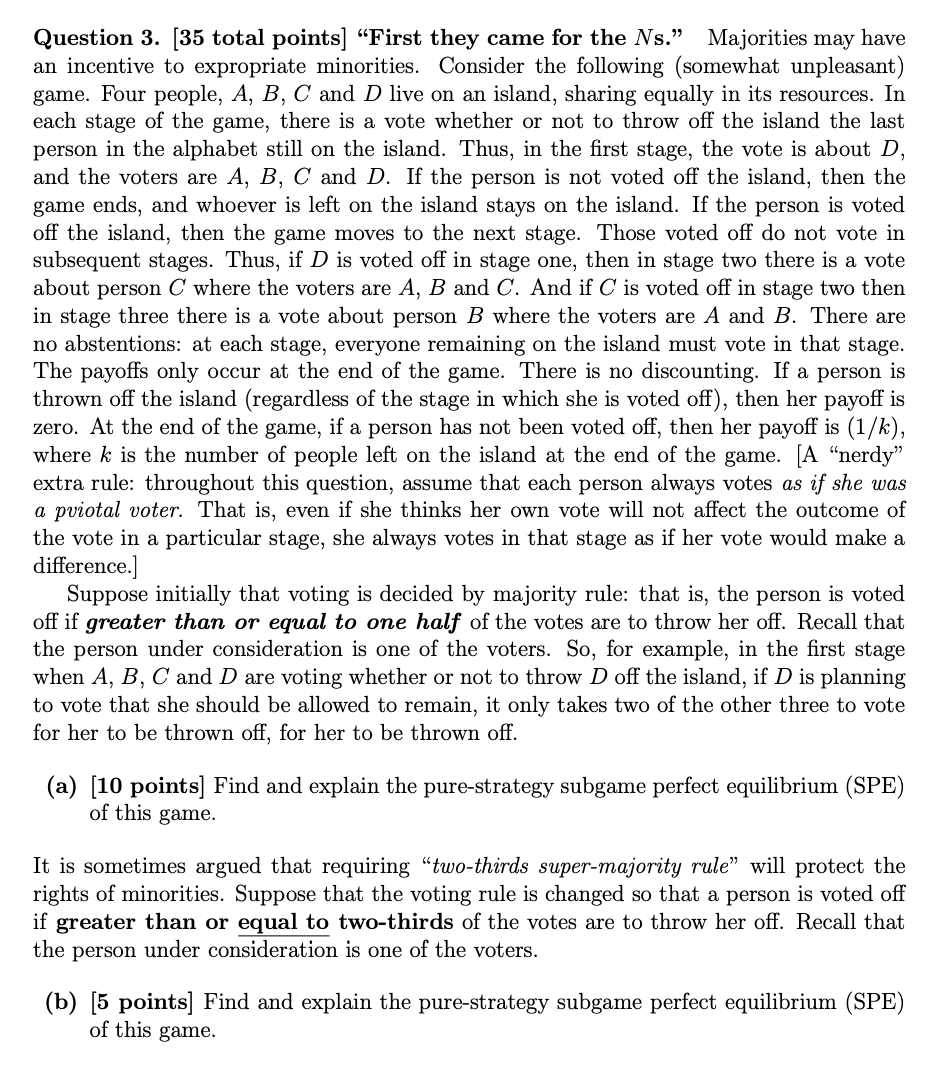this is a strategic behavioural game theory question
Question 3. [35 total points] \"First they came for the N s.\" Majorities may have an incentive to expropriate minorities. Consider the following (somewhat unpleasant) game. Four people, A, B, C and D live on an island, sharing equally in its resources. In each stage of the game, there is a vote whether or not to throw off the island the last person in the alphabet still on the island. Thus, in the rst stage, the vote is about D, and the voters are A, B, C and D. If the person is not voted off the island, then the game ends, and whoever is left on the island stays on the island. If the person is voted off the island, then the game moves to the next stage. Those voted off do not vote in subsequent stages. Thus, if D is voted off in stage one, then in stage two there is a vote about person C where the voters are A, B and C. And if C is voted off in stage two then in stage three there is a vote about person B where the voters are A and B. There are no abstentions: at each stage, everyone remaining on the island must vote in that stage. The payoffs only occur at the end of the game. There is no discounting. If a person is thrown off the island (regardless of the stage in which she is voted off), then her payoff is zero. At the end of the game, if a person has not been voted off, then her payoff is (1 / k), where k: is the number of people left on the island at the end of the game. [A \"nerdy\" extra rule: throughout this question, assume that each person always votes as if she was a puiotcl water. That is, even if she thinks her own vote will not affect the outcome of the vote in a particular stage, she always votes in that stage as if her vote would make a difference] Suppose initially that voting is decided by majority rule: that is, the person is voted off if greater than or equal to one half of the votes are to throw her off. Recall that the person under consideration is one of the voters. So, for example, in the rst stage when A, B, C and D are voting whether or not to throw D off the island, if D is planning to vote that she should be allowed to remain, it only takes two of the other three to vote for her to be thrown off, for her to be thrown off. (a) [10 points] Find and explain the pure-strategy subgame perfect equilibrium (SPE) of this game. It is sometimes argued that requiring \"two-thirds super-majority mic\" will protect the rights of minorities. Suppose that the voting rule is changed so that a person is voted off if greater than or equal to two-thirds of the votes are to throw her off. Recall that the person under consideration is one of the voters. (b) [5 points] Find and explain the pure-strategy subgame perfect equilibrium (SPE) of this game







